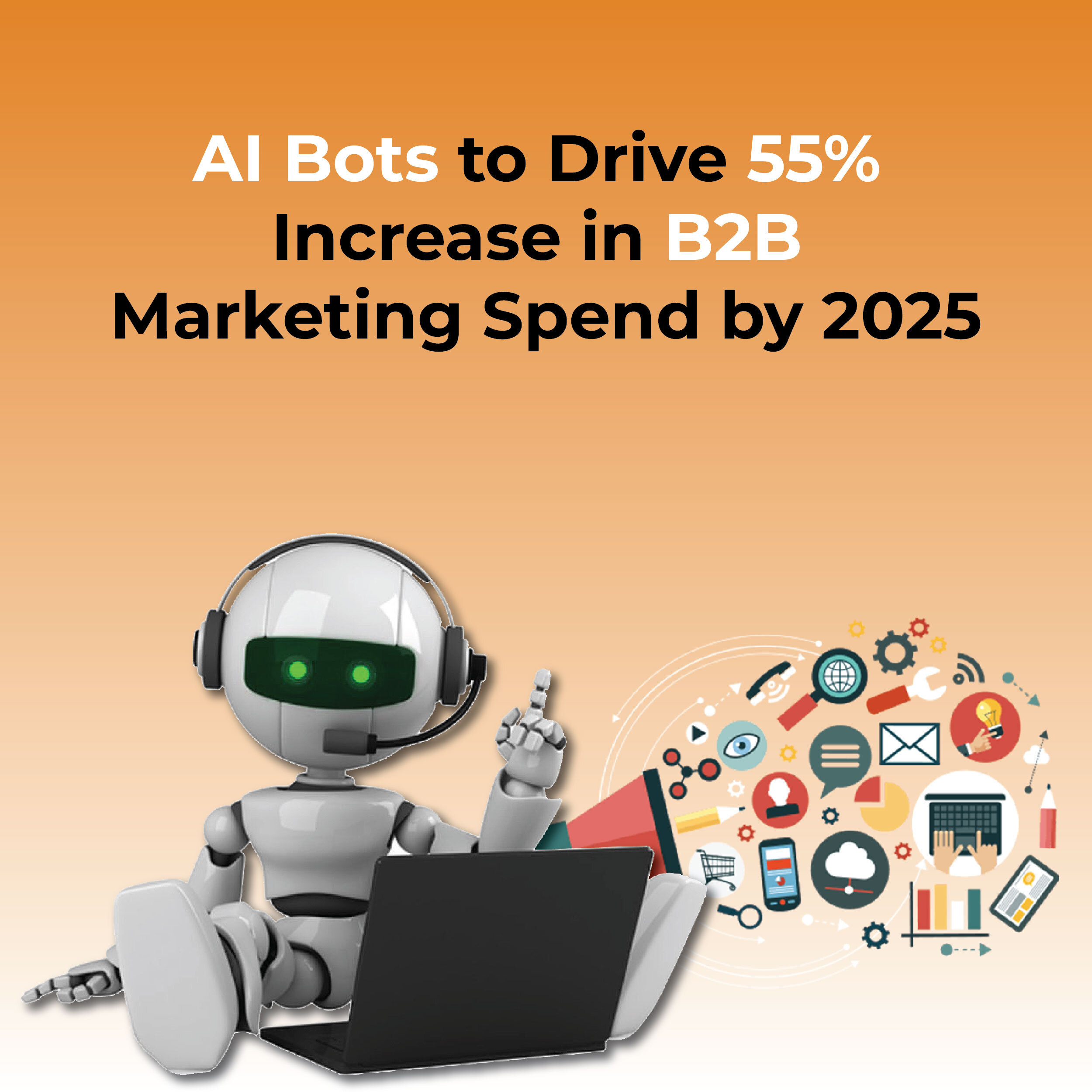Increased Investment in AI Bots
With great potential to streamline operations and enhance marketing strategies, AI also presents some serious challenges. Among these are job displacement and concerns about system reliability.
According to a recent Forrester study, the gap between the capabilities needed to navigate the AI era and the current state of marketing organizations is widening. Only 12% of marketing leaders believe that their current organizational structure can achieve revenue goals. Furthermore, only 7% are confident in their teams skills and competencies to meet the demands of the evolving marketing landscape.
Subhendu Pattnaik, principal analyst at Forrester, brings to light that this swiftly changing landscape will lead CMOs to reorganize their teams often and may still be unable to fix the fundamental issues. Giving an instance of potential restructuring, Subhendu says, “Take sales development or business development representatives who might be aligned with the sales team in the organization. They might be realigned with the marketing team if they are not achieving their objectives in the sales department.”
How AI Will Assist in Driving Business Growth
While both sales and marketing teams share the common goal of driving business growth, their approaches vary vastly. Sales representatives carry on one-to-one conversations with potential customers, while marketing uses a one-to-many approach to communicate. Sometimes, the collaboration of support functions between marketing and sales is necessary to deliver best-in-class results.
However, simply tweaking the structure by re-assigning or reconfiguring a new team does not help get across the deeper issues. The problem at hand demands a multi-layered campaign strategy, starting with broad brand-wide initiatives, which leads to unit and business segment specifics. Ensuring alignment at multiple levels helps organizations identify real problems and implement effective solutions instead of quick fixes.
AI’s Role in Marketing Teams
The focus area for marketing teams in the coming years will be upskill talent to harness the power of both human and AI capabilities. Training and development would ensure that the marketing teams are better prepared to handle the ever-changing digital landscape and bring about sustainable growth. 91% of B2B buyers who adopted GenAI technology or are planning to adopt it say that it is assisting in making better buying decisions.
Forrester estimates that by 2025, AI coworkers will be valued marketing team members in most organizations; however, this will not affect the marketing team’s immediate workforce. The report mentions that regardless of the rising adoption, GenAI tools are not considered trustworthy enough to cause workforce contraction just now. Approximately 55% of global B2B marketing leaders intend to expand their investment in AI-powered assistants and conversation automation solutions in 2025.
The big surprise for Pattnaik from the Forrester predictions for 2025 is the highly effective use of AI in B2B buying. “Generative AI is a new technology. The effectiveness of AI is yet to be proven. But we see that people are using it and figuring it out. It was surprising to learn that 91% of B2B buyers who have used the technology or planning to use it say that it is helping them make better buying decisions.”
Shorter buying cycles
As per the research, 65% of buyers claim that GenAI is assisting them reduce research time and helping them plan for more vendors. The research report said that GenAI will shorten procurement cycles while improving 50% of B2B buyers to consider five or more suppliers for large buyers but will cut down the buying cycles.
Impact of GenAI
65% of B2B buyers also claim that GenAI assists them in decreasing research time and helps them look at more suppliers. The other significant finding for the market is that while the buying cycle is now shorter, marketers hold less control over it. “Reducing the buying cycle was always a marketer’s dream, but now that has happened, we are feeling that it is suddenly out of control. Earlier, a marketer had 20 interactions with a buyer and if 3-4 went wrong, you had several more as leeway.”
But now 15-20% error margins have cut down to one interaction going wrong in five interactions. “That’s a big shift for a marketer. CMOs have to start looking at or engaging buyers way before they have made up their minds that these are the five providers I work with,” says Pattnaik.
Investment in AI-powered solutions
AI bots are here to ease our work and assist in reshaping the world with the help of technology. One critical area where AI focuses majorly is upskilling. By 2025, co-existing with AI will become essential for success. Interestingly, Forrester estimates that AI will play an integral part in marketing teams in every other organization. AI will continuously grow at an unexpected pace, even during the skepticism this year. Global marketers are continuously increasing their investment in AI-powered assistants to gain a better landscape and offer better services to customers.
In conclusion, the rapid advancement and adoption of AI in B2B marketing is reshaping the industry. With a clear focus on upskilling, strategic restructuring, and leveraging AI-driven insights, marketers can position themselves to thrive in this new era of marketing. By 2025, co-existing with AI will no longer be optional—it will be essential for success.
